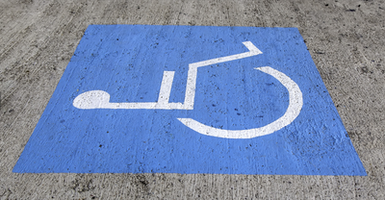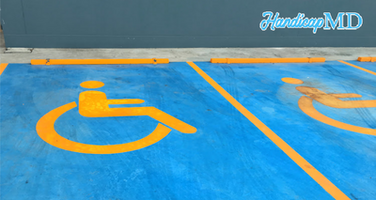
Florida Form HSMV 83039: Your Complete Guide to the Florida Handicap Parking Application Online
Florida Form HSMV 83039: Florida Handicap Parking Application Online - If you're a Florida resident with a disability, navigating the process to obtain a handicap parking placard or license plate can seem daunting. The Florida Department of Highway Safety and Motor Vehicles (FLHSMV) has made this process straightforward with the HSMV Form 83039, designed for individuals seeking temporary or permanent disabled parking permits.
In this comprehensive guide, we’ll break down the entire application process, explain how to fill out Form HSMV 83039, highlight the qualifying conditions, and provide essential tips to ensure you can quickly and efficiently get your Florida handicap parking permit online. This article is optimized to rank on page one of Google for users searching for “Florida handicap parking application online.”
What Is Florida Form HSMV 83039?
Florida Form HSMV 83039 is the official application used to request a disabled parking permit in Florida. It serves both residents with permanent disabilities who need a long-term parking placard or license plate and those with temporary disabilities who require short-term access to handicap parking.
The form is issued by the Florida Department of Highway Safety and Motor Vehicles (FLHSMV) and is required to be completed by both the applicant and a licensed physician or other qualifying healthcare provider. Once completed, it can be submitted either in person, by mail, or through online channels depending on your county’s DMV services.
Who Qualifies for a Florida Handicap Parking Permit?
Florida residents with certain medical conditions can qualify for a handicap parking permit, provided they meet the eligibility criteria outlined by the Florida Department of Highway Safety and Motor Vehicles (FLHSMV). The official form used for this process is Form HSMV 83039, which details the specific medical conditions that warrant a disabled placard or plate. Below are the main conditions under which an individual may qualify for a Florida handicap parking permit:
1. Inability to Walk 200 Feet Without Stopping
Individuals who cannot walk 200 feet without needing to stop due to a medical condition that affects mobility are eligible. This could result from chronic pain, musculoskeletal issues, or other physical impairments that severely limit a person's ability to walk long distances without rest.
Relevant Medical References:
2. Respiratory Issues
Persons with respiratory problems that significantly impair their ability to breathe are eligible for a handicap parking permit. This includes individuals who require portable oxygen or suffer from lung diseases, such as chronic obstructive pulmonary disease (COPD) or emphysema, which limit airflow and reduce oxygen supply to the body.
Relevant Medical References:
3. Severe Cardiac Conditions (Class III or IV)
Individuals with severe heart conditions that are classified as Class III or Class IV according to the American Heart Association (AHA) guidelines may also qualify. These classifications refer to patients who experience significant limitations in physical activity due to cardiac issues. Symptoms may include fatigue, shortness of breath, and chest pain, even during minimal activity.
Relevant Medical References:
- American Heart Association – Heart Failure Classification
- Johns Hopkins Medicine on Cardiovascular Diseases
4. Limited Use of Limbs
Persons with limited use of one or more limbs due to paralysis, orthopedic conditions, neurological disorders, or arthritic conditions are eligible for a permit. This limitation might prevent the individual from performing basic tasks or require the use of mobility aids such as crutches, canes, or prosthetics.
Relevant Medical References:
- National Institute of Neurological Disorders and Stroke (NINDS) – Paralysis
- American Academy of Orthopedic Surgeons on Neurological and Orthopedic Conditions
5. Permanent Reliance on a Wheelchair or Mobility Aid
Those who are permanently dependent on a wheelchair or another mobility aid qualify for a disabled parking permit. This includes individuals with paraplegia, quadriplegia, or other conditions that necessitate the constant use of mobility devices for day-to-day activities.
Relevant Medical References:
How to Obtain and Complete Florida Form HSMV 83039
Step 1: Download the Form
To get started, you need to obtain Florida Form HSMV 83039. You can easily get the Florida Department of Highway Safety and Motor Vehicles (FLHSMV) form once you sign up with our website.
- Visit the FLHSMV website to download the form: HSMV 83039 Form PDF.
- Print the form and review it carefully before filling it out.
Step 2: Fill Out the Applicant Section
The first section of Form HSMV 83039 requires your personal details. Here’s what you’ll need to fill in:
- Full name: Ensure that your name matches the name on your Florida ID or driver’s license.
- Address: Enter your current residential address. If you’re applying for a permanent placard, this address should align with your driver’s license or ID.
- Date of birth: You must provide your date of birth for identification purposes.
- Driver’s license or ID card number: This is essential for verification.
- Email and phone number: Include your contact information in case the DMV needs to reach out for additional documentation or clarification.
Step 3: Physician Certification
The most important part of the Florida handicap parking application is the certification by a licensed physician or qualifying healthcare provider, such as a podiatrist, optometrist, or advanced registered nurse practitioner (ARNP). They must assess your condition and verify that you meet one of the qualifying criteria.
Here’s what your healthcare provider must do:
- Complete the medical certification section, including your diagnosis.
- Specify if your condition is temporary or permanent.
- Temporary permits are valid for up to six months.
- Permanent permits are valid for up to four years and must be renewed before expiration.
- Sign and date the form.
- Provide their medical license number and other relevant professional information.
Step 4: Submitting the Completed Form
Once both you and your healthcare provider have filled out the necessary sections of Form HSMV 83039, you’ll need to submit the form to your local county tax collector’s office or the Florida Department of Highway Safety and Motor Vehicles.
There are three submission options:
- In-Person Submission: You can visit your local tax collector’s office or DMV branch to submit the form.
- Mail-In Submission: Some counties allow you to mail the completed form. Check your local tax collector’s office website for specific instructions.
- Online Submission: In certain counties, you may be able to submit your completed form online. Check with your local tax collector or DMV to see if this option is available.
Online Handicap Parking Permit Process
In recent years, the Florida DMV has made efforts to modernize services, allowing residents to complete certain processes online. While not all counties offer full online application processing for handicap parking permits, many have introduced features like appointment scheduling, status tracking, and even partial online submissions.
To find out whether your county offers online processing for Form HSMV 83039, visit your county tax collector’s website or the FLHSMV website.
Temporary vs. Permanent Handicap Parking Placards
Florida offers two types of disabled parking permits: temporary and permanent.
- Temporary Handicap Placard: If your disability is expected to improve within six months, you will qualify for a temporary placard. This placard is valid for up to six months, after which you can apply for a renewal if necessary.
- Permanent Handicap Placard: This is intended for individuals with long-term or lifelong disabilities. It is valid for up to four years, and the DMV will notify you when it’s time to renew.
Note: There is no fee for a permanent placard in Florida. Temporary placards come with a small fee, typically around $15.
Fees Associated with Florida Handicap Parking Permits
The fee for a temporary disabled parking placard is $15 in Florida. Permanent placards are free of charge for residents. If you are applying for a specialized license plate for your vehicle, additional fees may apply depending on the type of plate and vehicle registration.
How to Renew Your Florida Handicap Parking Permit
If you have a permanent placard, you must renew it every four years. The renewal process is simple:
- Receive your renewal notice from the Florida DMV.
- Submit a renewal application, which may require a physician’s recertification if there have been changes to your medical condition.
- Mail or submit the form in person at your local tax collector’s office.
Temporary placards can be renewed for an additional six months if your disability persists, but you will need to pay the $15 fee again and provide updated medical certification.
Lost, Stolen, or Damaged Handicap Placards
If your handicap parking placard is lost, stolen, or damaged, you can request a replacement by filling out a new HSMV 83039 form and submitting it to your local tax collector’s office. Make sure to indicate that it’s a replacement request, and include a brief explanation of the circumstances.
There is no fee for replacing a permanent placard, but a $15 fee applies to replace a temporary placard.
Where to Hang Your Handicap Placard
To avoid fines and penalties, make sure your placard is properly displayed when parking in a designated handicap space:
- The placard should be hung from the rearview mirror when the vehicle is parked.
- Ensure that the placard is visible through the windshield.
- Remove the placard when driving, as obstructing your view can lead to traffic violations.
Benefits of Getting Your Florida Handicap Parking Permit Online with HandicapMD.com
For individuals seeking to streamline the process of obtaining a Florida handicap parking permit, HandicapMD.com offers an efficient and accessible solution. Through their online platform, you can consult with licensed healthcare providers who specialize in helping individuals meet the eligibility requirements for a disabled parking placard.
Here are a few key advantages of using HandicapMD.com:
- Convenience: You can complete the entire application process from the comfort of your home.
- Expert Guidance: Their team understands ADA guidelines and will ensure that your application is handled correctly.
- Speed: Online consultations often lead to quicker approvals, helping you get your permit faster.
If you’re ready to start the application process, visit HandicapMD.com to see how they can assist you.
Conclusion: Streamlining Your Florida Handicap Parking Application Process
Applying for a handicap parking permit in Florida doesn’t have to be a complex or frustrating experience. By following the steps outlined in this guide and utilizing Florida Form HSMV 83039, you’ll be well on your way to receiving your disabled placard or license plate.
For those who prefer the convenience of an online process, services like HandicapMD.com can provide quick and easy assistance, ensuring your medical conditions are properly certified and your application is submitted without delay.
Remember, whether you’re applying for a temporary or permanent handicap parking permit, make sure all sections of the form are completed
accurately, and consult with your healthcare provider to confirm your eligibility.
Start your application today to secure your Florida handicap parking placard and enjoy the ease of accessible parking wherever you go.
.png)






